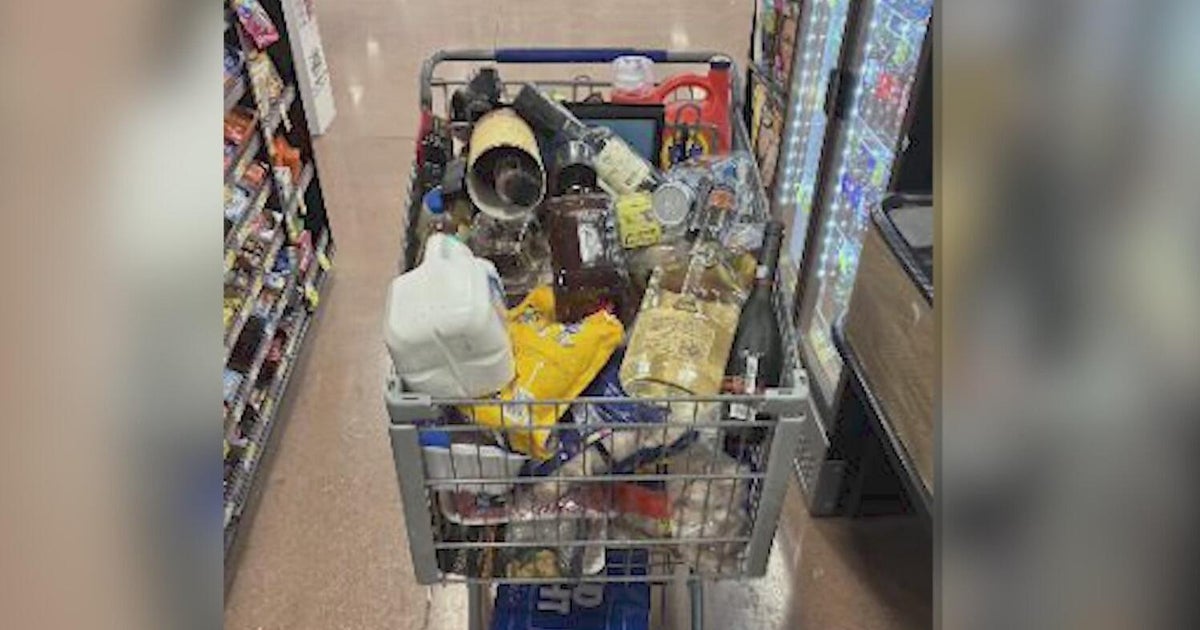Recalls of hazardous meat and poultry up 83 percent since 2013, report finds
Recalls of hazardous meat and poultry have gone up by more than 80 percent in the last six years, according to a new report out Thursday morning. One in six Americans get sick every year from eating contaminated food leading to at least 3,000 deaths per year – 450 from salmonella alone.
"Something is rotten in our slaughterhouses and our fields, and so common sense protections from farm to fork can help prevent that," said Adam Garber, a researcher for the U.S. Public Interest Research Group, the organization behind the report.
It found recalls of produce and processed food by the FDA increased about two percent from 2013 to 2018 and the most hazardous meat and poultry recalls by the USDA increased by 83 percent.
The report recommends the FDA require testing "water used for irrigation or watering of produce for hazardous pathogens" like E. coli and for meat and poultry products, declare when "antibiotic resistant strains of salmonella as an adulterant" are found.
"There are opportunities to improve and hold companies liable when they are violating food safety plans," Garber said.
Benjamin Selig said a tainted salad changed his life forever. Last October his 75-year-old wife, Karen, went into septic shock. She tested positive for the same strand of E. coli linked to romaine lettuce.
"It's very sad to see her. She's not herself," Selig said. "We used to travel a lot, we traveled together every year … this is not easy."
Selig believes his wife got E. coli from contaminated lettuce at home. The grandmother of four spent weeks in the hospital and now lives in a rehab facility. He said his wife had a pre-existing kidney condition but now needs dialysis three days per week.
The National Chicken council told CBS News it hasn't yet seen the U.S. Public Interest Research Group's report but said what significantly reduces the threat of salmonella are food safety plans that the USDA enforces. They also said "any increase in recalls could be attributed to tighter government standards, better testing and technology."
The American Association of Meat Processors said, "procedures and safety plans are already in place ... to reduce these risks" of salmonella
As for Karen Selig, she might be able to go home this weekend but life will be very different.
"She can't be left alone at all anymore … I am hopeful that we can get her back to some more normal existence and that is what we are hoping for," her husband said.
The Produce Marketing Association declined to comment without seeing the report first.
Both the FDA and USDA said their safety inspectors are still working despite the partial government shutdown. USDA did not comment on the report.
FDA Commissioner Scott Gottlieb tweeted a series of responses to the report Thursday afternoon. He said, "We appreciate US PIRG's interest in the safety of the nation's food system and we always welcome a larger conversation on the topic. Public health is our top priority and FDA is working hard to ensure the U.S. food supply remains among the safest in the world.
While we agree with the premise that prevention is always better than a corrective action, such as executing a recall, there should be caution in using recall numbers alone as the sole metric for gauging long-term performance trends in food safety.
Dramatic improvements in new tools to detect foodborne pathogens has likely resulted in an increased # of recalls. The complexity of supply chain for foods has also increased so one contaminated ingredient can trigger many recalls, which can affect the overall number of recalls.
FDA ensures that recalls by companies – voluntary or involuntary – are initiated, overseen, and completed promptly and effectively, and that consumers have timely, actionable information to protect themselves and their families.
Even during the lapse in funding, we're continuing to support recalls as necessary to identify and respond to threats to the safety of human life, and activities for the surveillance and inspection of high-risk foods.
Over the past year, #FDA has made several key policy changes to improve and modernize its food recall processes -- with a focus on providing more meaningful information to consumers.
More actions to improve our recall policies are planned, including ways to further improve our ability to track and trace products through the supply chain. We'll continue to communicate on these efforts in the coming year."
If you'd like more information about food recalls, you can sign up for alerts through the FDA and USDA and ask your local store if they offer alerts.





